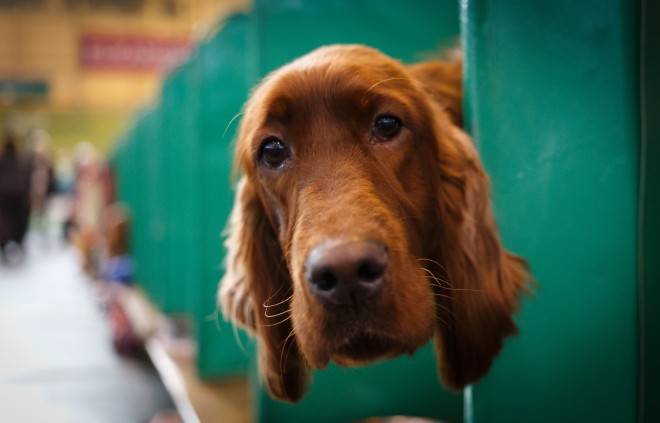
There are many questions about dog vaccines. Does your dog need yearly vaccines? What are the real risks of vaccination? What is a safe, advised vaccine protocol for my dog? Are there alternate options to conventional dog vaccines? In this article I will give you an understanding of what vaccines are, including the reasons for vaccination. I will highlight the new canine vaccine recommendations, along with the risks associated with vaccines. You will see some of the vaccine alternatives, along with my suggested vaccine protocol. Whether you choose to vaccinate your dog or not can have serious health implications; I urge you to completely read the article, discuss it with your veterinarian, and make an informed decision.
Vaccinations work by stimulating the immune system. The positive effect is to protect against infectious disease. When vaccines are given, they incite the immune system to produce something called 'humoral immunity'. Humoral immunity is essentially disease protection that is mediated or controlled by antibodies. If the body has had a previous encounter with a pathogen, the body makes 'Opposite Invaders' to circulate in body fluids. The 'Opposite Invaders' are called antibodies. These molecules attach to or otherwise disable invaders and prevent them from doing harm to the body.
The conventional approach in the past was to get annual 'booster shots', in the belief that vaccines only provided immunity for approximately one year, and that revaccination was required in order to boost or maintain a dog's immunity. This was the advised protocol of veterinary associations for decades, and most veterinarians followed that protocol. Fortunately times have changed, and now recent American Animal Hospital Association (AAHA) guidelines advise that all core vaccines are recommended every 3 years, with the 1 year Rabies being the exception. They have also stated that distemper virus, parovovirus, and adenovirus vaccine immunity lasts for at least 5 years; AAHA though still suggests that your dog is given the vaccine more frequently than the length of immunity. They advise giving 3 boosters prior to 16 weeks, vaccines at 1 year, then every 3 years thereafter. In many cases individual States or Provinces require rabies vaccine to be given prior to 16 weeks, boosted at 1 year, then every year thereafter.
Vaccines have a number of risks, and the AAHA report states that: "Vaccine adverse effects (AE's) are underreported in veterinary medicine." There are short term side effects which can last for up to 3 days, such as appetite loss, injection site pain, lethargy, unwillingness to walk/run, and fever. More serious sudden side effects include: vomiting, diarrhea, swelling of skin, seizuring, breathing difficulty and collapse. Then there are the immune related diseases, including immune mediated hemolytic anemia, immune mediated skin disease, vaccine induced skin cancer, skin allergies, arthritis, leukemia, inflammatory bowel disease, thyroid disease, kidney disease, and neurological conditions, to name a few. The reasoning behind this is that when a vaccine is injected, the immune system becomes 'over-taxed' and responds inappropriately. It may turn and attack itself, as in the event of an autoimmune disease, or even attack the site of the injection. We see the evidence clearly in cats with the incidence of injection site sarcomas, or with dogs, the worsening of inhalant allergies after vaccination. The list of potential problems is exhaustive.
More dog owners are now making the decision on whether or not to re-vaccinate their dog by checking their dog's immunity level with antibody titers. These titers have become more standardized, and when measured at a particular level, will give a good indication if your dog has enough antibodies to be protected against canine distemper virus, canine parvovirus and rabies. Antibody titers are a great way to see if your dog is in need of revaccination following the puppy vaccine boosters.
The chief alternatives to vaccines are called homeopathic nosodes. A nosode is thought to carry a mirror image or reflection of the disease, or in other words the 'molecular imprint' of it. When the nosode is administered, it sensitizes the immune system and helps it prepare the body for the defense against that same disease, without actually being exposed to the full strength of the living disease. Nosodes are considered completely safe, with no side effects, but their effectiveness is questionable. Some dog owners report that they seem to offer some protection by reducing the severity of illness if your dog is exposed to these infectious viruses.
The vaccine regimen I suggest is based in my own research and experience in veterinary practice. Puppies only need a series of two vaccine boosters, one at 8 weeks then repeated at 12 weeks. I find the most critical time to prevent infectious disease is at this young age. In small puppies, I prefer to wait until 12 weeks. The traditional third booster in puppies is not necessary. If possible, delay giving the rabies vaccine until 6 months. Puppies should only be vaccinated for parvovirus (MLV - modified live vaccine) and Distemper (MLV). Only give bordetella (kennel cough) vaccines if going to a kennel or puppy class. Give rabies vaccine (KILLED) at 6 months.
I do not recommend vaccinations for corona virus, leptospirosis, lyme or giardia vaccines for dogs. The currently licensed leptospira bacterins do not contain the serovars (viruses) causing the majority of clinical leptospirosis today, so it is generally not a useful vaccine.
My current advice is to give booster vaccines at 1 year, then every 3 years until the age of 10. With the new research showing longer duration of immunity (5-7 years), you may not need to be re-vaccinating your dog for 5-7 years after the 1 year booster. Most of the infectious diseases are transmitted when dogs are young; the most important vaccines are the two boosters for puppies and the one year booster. Discuss this with your veterinarian prior to vaccinating your dog.
This issue of dog vaccination is fraught with controversy and an array of conflicting opinions. There are real benefits of vaccines, but also risks, from short term lethargy, to more serious disease such as autoimmune disorders. Fortunately organizations such as AAHA are now suggesting longer intervals between vaccines, but the number, and frequency of vaccines is still up for debate. Consider my suggested vaccine protocol, and learn as much as possible about vaccines and diseases in your area. Your veterinarian cannot make this decision for you, nor should they. It is your responsibility to make this decision for your dog. The best road to good health is feeding a diet rich in fresh foods, raw meats for the carnivores, fatty acid supplements, adequate exercise, lots of positive human interaction and avoiding disease.
Dr Andrew Jones is the author of a NEW Free Ebook, Dog Health Secrets, which gives you over 100 safe, natural and effective at home remedies to solve your dog's health problems quickly and easily at home. He reveals what Vaccines to AVOID and what to give, The BEST food to feed, plus HOW to save money on veterinary fees. Go to: Dog Health Secrets Book
 Crufts 2015 - The Bad Parts
Crufts 2015 - The
Crufts 2015 - The Bad Parts
Crufts 2015 - The
 Lowchen Dog Hereditary Health And Genetic Diversity
Lowchen Dog Hered
Lowchen Dog Hereditary Health And Genetic Diversity
Lowchen Dog Hered
 Can Dogs Use Their Sense Of Smell To Find Their Way Home?
Can Dogs Use Thei
Can Dogs Use Their Sense Of Smell To Find Their Way Home?
Can Dogs Use Thei
 7 Of The Most Affectionate Cat Breeds
7 Of The Most Aff
7 Of The Most Affectionate Cat Breeds
7 Of The Most Aff
 Cat Dandruff - Causes And Treatment
Cat Dandruff - Ca
Cat Dandruff - Causes And Treatment
Cat Dandruff - Ca
Copyright © 2005-2016 Pet Information All Rights Reserved
Contact us: www162date@outlook.com